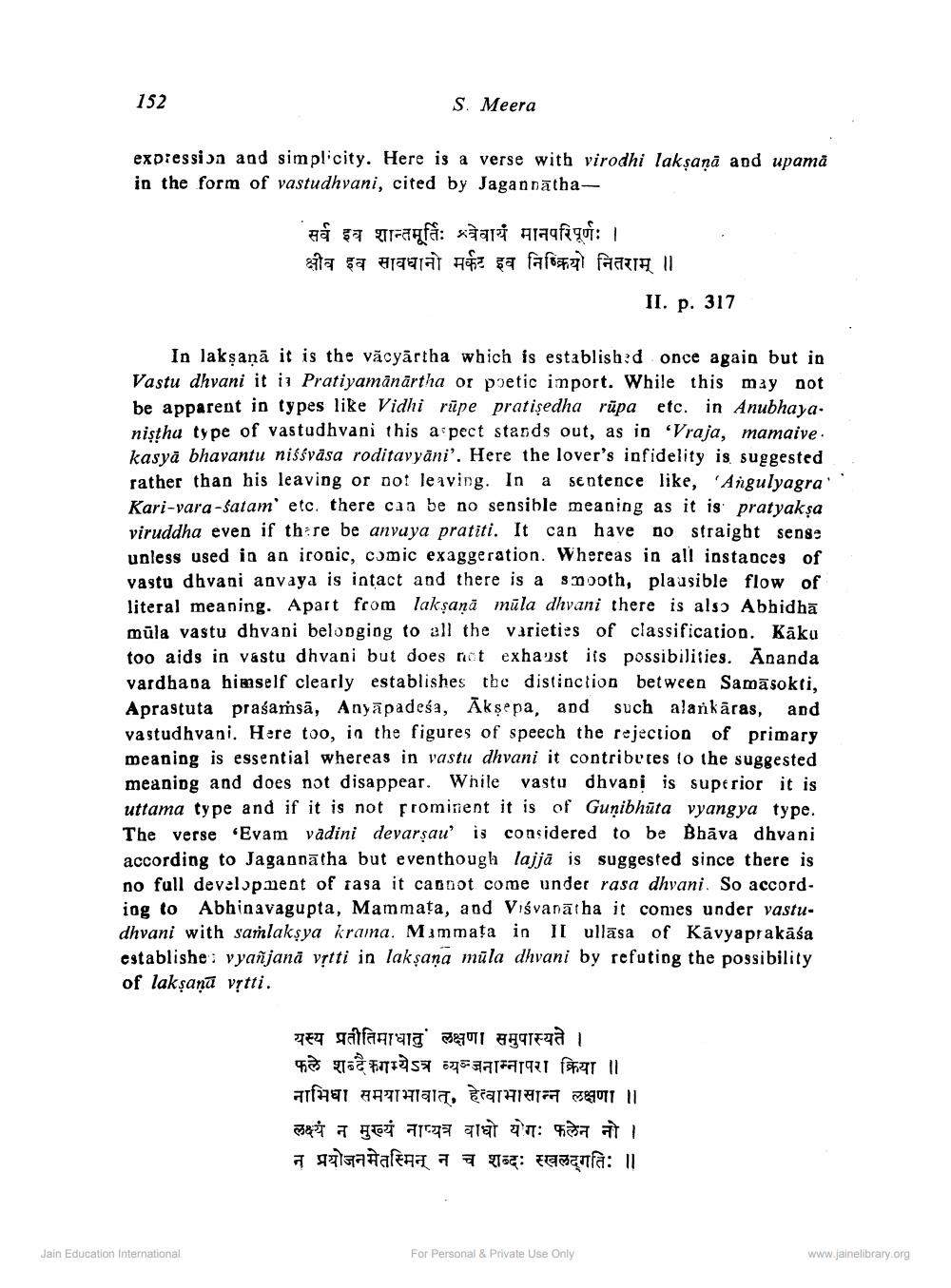________________
152
S. Meera
expression and simplicity. Here is a verse with virodhi laksana and upamă in the form of vastudhvani, cited by Jagannātha
सर्व इव शान्तमूर्तिः श्वेवायं मानपरिपूर्णः । श्रीव इव सावधानो मर्कट इव निष्क्रियो नितराम ॥
II. p. 317
In lakşaņā it is the văcyārtha which is established once again but in Vastu dhvani it in Pratiyamānārtha or poetic import. While this may not be apparent in types like Vidhi rūpe pratiședha rūpa etc. in Anubhayanisthu type of vastudhvani this aspect stands out, as in "Vraja, mamaive. kasyā bhavantu niśíväsa roditavyāni'. Here the lover's infidelity is suggested rather than his leaving or not leaving. In a sentence like, 'Angulyagra' Kari-vara-satam' etc. there can be no sensible meaning as it is pratyaksa viruddha even if the be anvuya pratiti. It can have no straight sense unless used in an ironic, comic exaggeration. Whereas in all instances of vastu dhvani anvaya is intact and there is a smooth, plausible flow of literal meaning. Apart from laksaņā mūla dhvani there is also Abhidhā mūla vastu dhvani belonging to all the varieties of classification. Kāku too aids in vastu dhvani but does not exhaust its possibilities. Ananda vardhana himself clearly establishes the distinction between Samāsokli, Aprastuta prasamsā, Anyāpadeśa, Aksepa, and such alankāras, and vastudhvani. Here too, in the figures of speech the rejection of primary meaning is essential whereas in vastu dhvani it contributes to the suggested meaning and does not disappear. While vastu dhvani is superior it is uttama type and if it is not prominent it is of Gunibhūta vyangya type. The verse Evam vadini devarşau' is considered to be Bbāva dhvani according to Jagannātha but even though lajjā is suggested since there is no full development of tasa it cannot come under rasa dhvani. So accordiog to Abhinavagupta, Mammata, and Visvanātha it comes under vastudhvani with samlakşya krama. Mammata in fulläsa of Kāvyaprakāśa establishe: vyañjanā vịtti in laksana mūla dhvani by refuting the possibility of lakṣaṇā vștti.
यस्य प्रतीतिमाधातु लक्षणा समुपास्यते । फले शब्दै कगम्येऽत्र व्यञ्जनाम्नापरा क्रिया ॥ नाभिधा समयाभावात्, हेत्वाभासान्न लक्षणा ।। लक्ष्यं न मुख्यं नाप्यत्र वाधो योगः फलेन नो । न प्रयोजनमेतस्मिन् न च शब्दः स्खलद्गतिः ॥
Jain Education International
For Personal & Private Use Only
www.jainelibrary.org




